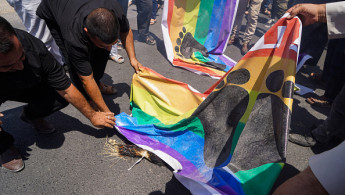Passage of anti-LGBTQ+ law in Iraq draws diplomatic backlash
Human rights groups and diplomats criticised a law that was quietly passed by the Iraqi parliament over the weekend that would impose heavy prison sentences on gay and transgender people.
U.S. State Department spokesperson Matthew Miller said in a statement that the law passed Saturday "threatens those most at risk in Iraqi society" and "can be used to hamper free-speech and expression." He warned that the legislation could drive away foreign investment.
"International business coalitions have already indicated that such discrimination in Iraq will harm business and economic growth in the country," the statement said.
British Foreign Secretary David Cameron called the law "dangerous and worrying."
Although homosexuality is taboo in the largely conservative Iraqi society, and political leaders have periodically launched anti-LGBTQ+ campaigns, Iraq did not previously have a law that explicitly criminalised it.
The law passed Saturday with little notice as an amendment to the country’s existing anti-prostitution law. It imposes a sentence of 10 to 15 years for same-sex relations and a prison term of one to three years for people who undergo or perform gender-transition surgeries and for "intentional practice of effeminacy."
It also bans any organisation that promotes "sexual deviancy," imposing a sentence of at least seven years and a fine of no less than 10 million dinars (about $7,600).
A previous draft version of the anti-prostitution law, which was ultimately not passed, would have allowed the death sentence to be imposed for same-sex relations.
Iraqi officials have defended the law as upholding societal values and portrayed criticisms of it as Western interference.
The acting Iraqi parliamentary speaker, Mohsen Al-Mandalawi, said in a statement that the vote was "a necessary step to protect the value structure of society" and to "protect our children from calls for moral depravity and homosexuality."
Rasha Younes, a senior researcher with the LGBT Rights Program at Human Rights Watch, said the law’s passage "rubber-stamps Iraq’s appalling record of rights violations against LGBT people and is a serious blow to fundamental human rights, including the rights to freedom of expression and association, privacy, equality, and nondiscrimination."
A report released by the organisation in 2022 accused armed groups in Iraq of abducting, raping, torturing, and killing lesbian, gay, bisexual, and transgender people with impunity and the Iraqi government of failing to hold perpetrators accountable.





 Follow the Middle East's top stories in English at The New Arab on Google News
Follow the Middle East's top stories in English at The New Arab on Google News


